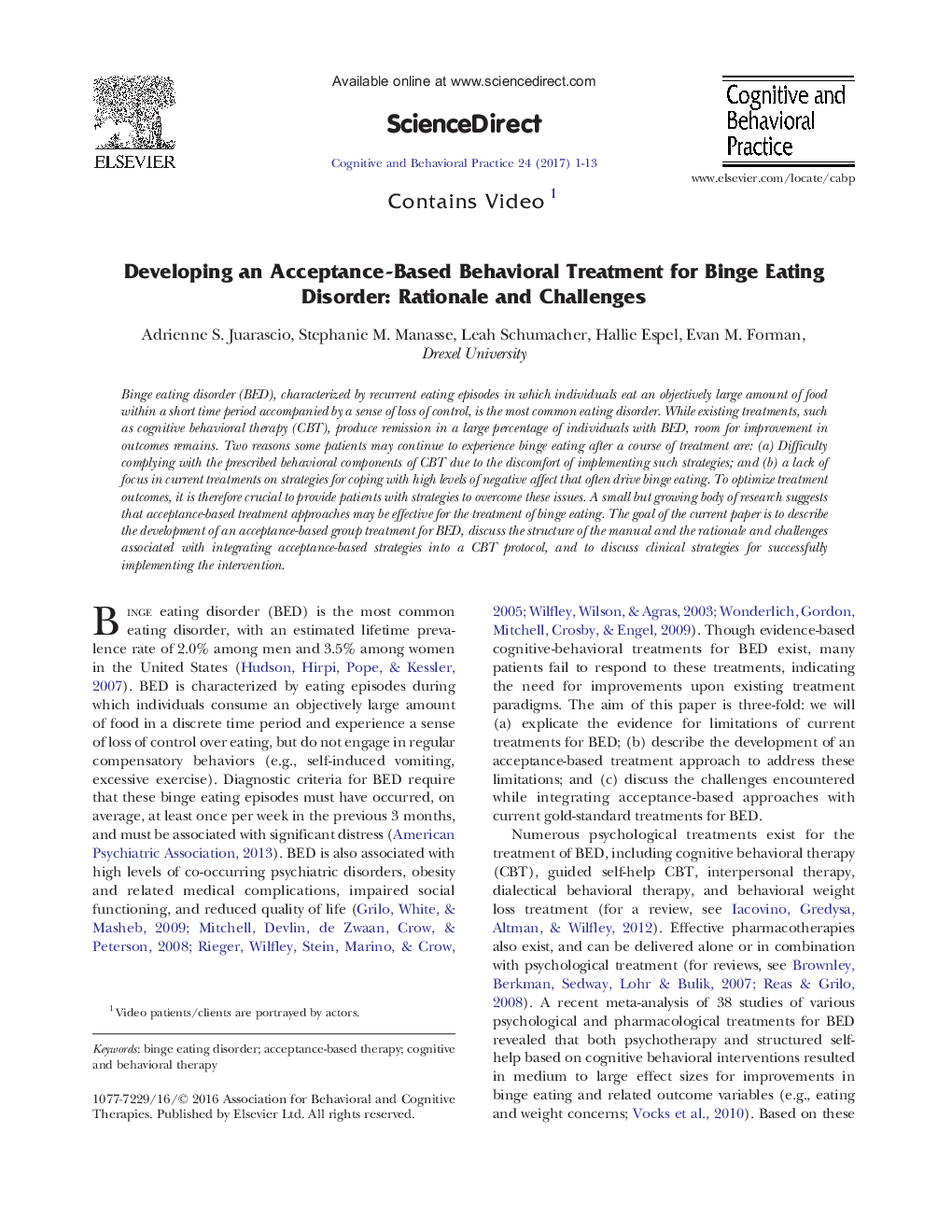| Article ID | Journal | Published Year | Pages | File Type |
|---|---|---|---|---|
| 5038580 | Cognitive and Behavioral Practice | 2017 | 13 Pages |
â¢The current paper describes an acceptance-based group treatment for BEDâ¢We show how we incorporated acceptance-based techniques into CBT for BEDâ¢The paper also provides tips for implementing the intervention
Binge eating disorder (BED), characterized by recurrent eating episodes in which individuals eat an objectively large amount of food within a short time period accompanied by a sense of loss of control, is the most common eating disorder. While existing treatments, such as cognitive behavioral therapy (CBT), produce remission in a large percentage of individuals with BED, room for improvement in outcomes remains. Two reasons some patients may continue to experience binge eating after a course of treatment are: (a) Difficulty complying with the prescribed behavioral components of CBT due to the discomfort of implementing such strategies; and (b) a lack of focus in current treatments on strategies for coping with high levels of negative affect that often drive binge eating. To optimize treatment outcomes, it is therefore crucial to provide patients with strategies to overcome these issues. A small but growing body of research suggests that acceptance-based treatment approaches may be effective for the treatment of binge eating. The goal of the current paper is to describe the development of an acceptance-based group treatment for BED, discuss the structure of the manual and the rationale and challenges associated with integrating acceptance-based strategies into a CBT protocol, and to discuss clinical strategies for successfully implementing the intervention.
